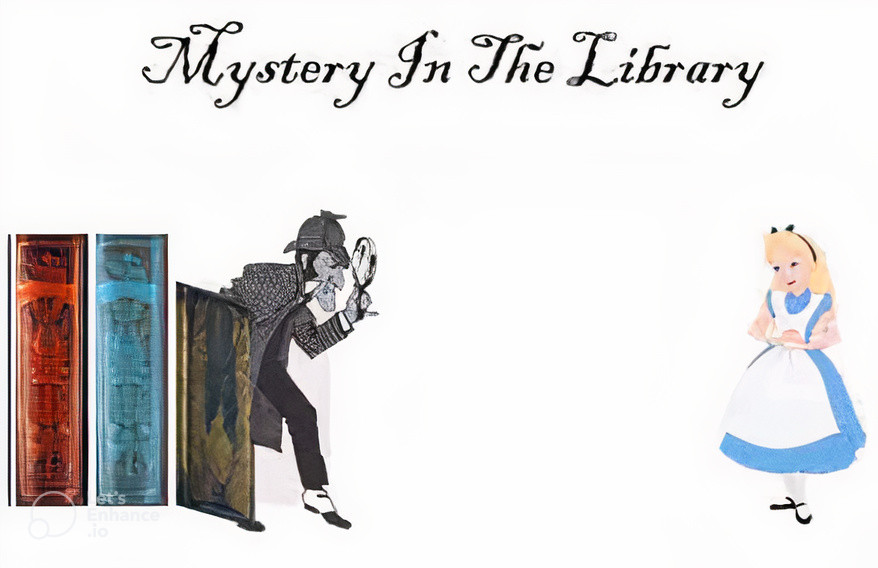Teach Your Kids Important Life Skills With These Mystery Games
How do kids learn through play activities?
Research has shown that the brains of mammals like ourselves are activated during play. Neuron connections in the prefrontal cortex are formed and this impacts emotional regulation and problem-solving.
Rats raised in a playful, stimulating environment had higher levels of a protein that grows and maintains brain cells.
The pleasure hormone oxytocin is released. This helps regulate emotions and supports social skills. The neurotransmitter dopamine is also released and this impacts memory, motivation, attention and mood. That’s why “Play Therapy” is now a recognised approach used by psychologists and counselors when helping children.
School principals have reported that just taking a recess break positively impacts academic performance. Students are more focused after the break.
Studies on children have shown that play improves language skills, problem solving skills and math skills. Some imaginative play improves perseverance. And some experts say that even achievement gaps can be closed between young children if they learn through play.
How can mystery games for kids achieve the same benefits?
As a School Librarian (J.S.) said, “I got The Hunt and performed it with 3,4, and 5th graders as part of a club program we do on early dismissal days. They loved it and it really uses problem solving and thinking skills and it’s fun! what more could you ask? Thank you. It’s actually the second I’ve used, I like them so much.”
A School Teacher Tina Wong used Mystery In The Library and said, “We had a fantastic time with our 8th grade middleschoolers. It was a bonding and team building time and this wonderful game brought incredible memories and fantastic anticipation for more of these mystery games to come. Thank you for an unforgettable evening!!! The kids and parents still talk about that “magical” evening!”
We have tried to make our learning kits educational, fun and mentally challenging yet solvable. Teachers have told us that our kits and team building games for kids use skills such as reading, analytical thinking, acting, imagination, pattern recognition and team work.
They use their reasoning abilities to weigh up all the clues and to decide what is important and what is just a red herring. They have rethink their assumptions and cognitive biases such as thinking that the villain is more likely to be a male.
They develop their critical thinking abilities by looking for evidence to support their assumptions,
recognizing gaps in information and discriminating between observation and inference and between fact and conjecture. They are led to syllogistic reasoning such as “if… then” statements and their corresponding conditional statements (e.g., it was either A or B, it wasn’t A and therefore it is B).
The mystery party games don’t involve rote learning and regurgitation, so they are forced to take a different approach. This leads them to a deeper level of learning with the use of learn through play activities.
Teachers can aid in this learning process by facilitating discussions before and after the game. For more details, see our School Mystery Games page.
Children learn through play with these games
We offer a range of informative and educational games for kids. Here is a brief summary of the games we recommend for kids and what they may learn from them:
Mysteries not murders:
- Hawaiian Lunacy… they learn historical aspects of Hawaiian history and folklore.
- Heavenly Frolicking Fun… they learn about some major famous Americans (good for 4th of July or anytime).
- Kidnapped By Pirates… they learn true historical information about Columbus. Mardi Gras Mayhem… they learn the historical and cultural aspects of the parade.
- Mystery in the Library… they learn about fairytale and book characters and about King Henry VIII of England.
- Out Of The Game… they learn about the 1919 World Series Black Sox Scandal and the advent of women to the game during WWII.
- Phony… this covers identity theft and a range of professions and university degrees available for career planning. Good for graduation time or anytime.
- Poetic Justice… they learn about famous 1920s writers and celebrities.
- Prom Pandemonium… this illustrates the rivalries that can occur in the final years of school.
- The Crazy Clown Car Caper… this was written by students of a high school in New Hampshire!
- The Hunt… this scavenger hunt teaches them about architecture, art history, music and gemology.
- The Luck Of The Irish… they learn Irish history, culture and mythology.
- The Superhero Mystery… this discusses crime and terrorism.
- Who Stole The Cookies?… this is similar to Mystery In The Library, but it has a different plot.
Murder mysteries:
- Caught In A Spanish Web… they learn issues such as worker motivation, pay, general treatment of workers etc.
- Celebrity Celebrations… they can learn about famous 1960s celebrities.
- Storm Survivors… they learn what it is like to survive a cyclone and about the arena of international athletics.




